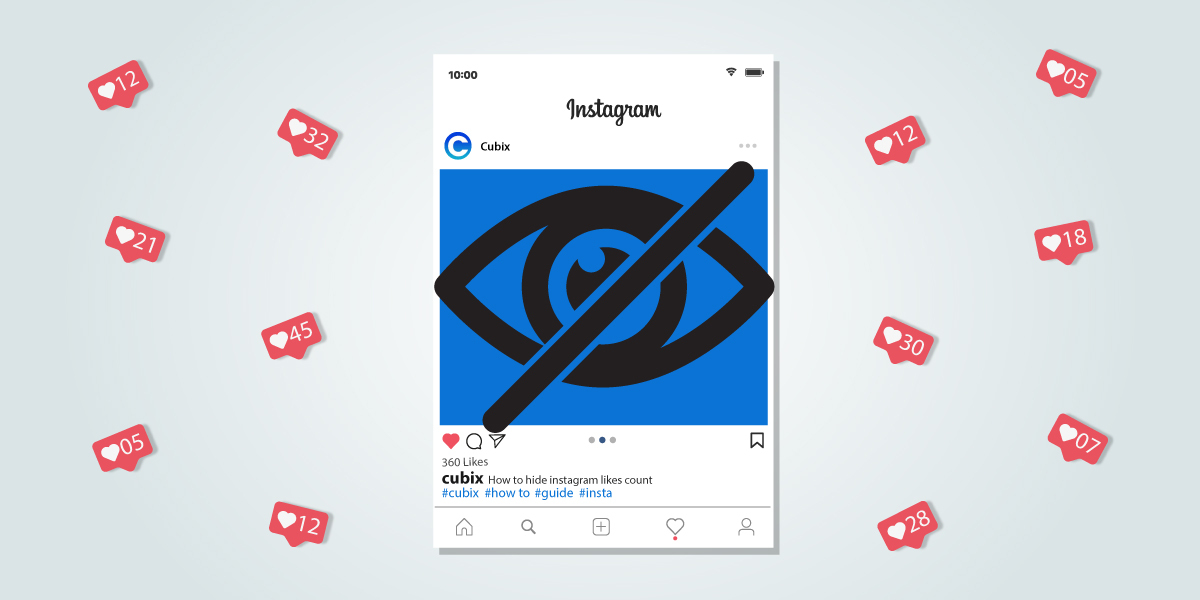Instagram and Facebook Users Will Be Able to Hide their Likes
In a world where social media has a decided impact on our lives, related mental health concerns have been raised from time to time. In 2019, Instagram said it would test hiding public like counts in Canada. They said the concern was about young people, and the likes they get or don’t get for a post impacts how they feel.
Why Social Media Applications Experimented with Hiding Likes
The idea of concealing post likes was intended to, as they said, ‘depressurize’ Instagram. However, this isn’t what happened during the experiment. Some users found these hidden likes annoying, partly because likes are used as a means of determining what’s trending. Even those who would get a handful of likes, believed that these should not be hidden. Regardless, at the end of the experiment, both Instagram and Facebook said they would allow users the option to hide the likes for their posts.
Social Media and Mental Health Concerns
While social media gurus have been cautious of the terminologies they use when it comes to mental health of young people, studies don’t mince their words. ChildMind clearly says that ‘validation’ is what a lot of young people seek through social media, and these people often cast themselves down through what Donna Wick, founder of Mind-to-Mind Parenting, calls a “perfect storm of self-doubt.”
Envy and Perceived Inferiority
People, particularly young people, tend to scroll through their Instagram and Facebook feeds, envying all those who seem to have a good time with pictures of themselves with friends, family members, and even their pets, at parks, celebrations, and whatnot. And they compare all that with their life activity, which seems dull. The result is constant negative feelings that may not be intense, but they become chronic.
Need for More Awareness
While social media sites have been doing a lot to help people manage how they feel, the real cure may not lie in feature adjustments and options; rather, more awareness and education can help. Individuals, especially youngsters, need to understand that all those people who get all those likes and shares are not those with small followings. Most of these people will have enjoyed some sort of following apart from what is projected on social media.
Let’s say you have a hundred people on your Facebook friends list; you can consider yourself lucky if you get 10 of them to like your post in the first 15 mins of posting it. That’s a simplistic probability-based approach.
Another fact is a person’s following in general; some people are already well-known in their community or at school. And there are obviously quite a few people who fall in this category. When they put that on social media, that popularity tends to expand. And obviously, this popularity has nothing to do with having a pretty face.
If someone is known for their sporting skills, they are quite likely to have a minimum fan base. But for people who don’t have a few of their own fans, it can be hard to ignore what they see as they scroll their timelines; it’s tough for them to focus on themselves and build their own following when their attention is elsewhere.
Can Mental Health on Social Media Improve with Pertinent App Development Solutions?
This dilemma may continue as there is only so much social media companies can do; however, this also means that the doors are wide open for solutions from app developers; perhaps there may be some alternative means of helping people feel better about their presence on social media.
Some mobile app developers suggest the idea of AI intervention to detect and aid users with potential or existing mental health issues. There are several aspects that can be considered, but many of these can be controversial. For the time being, users will have to settle for the options Facebook and Instagram allow.

